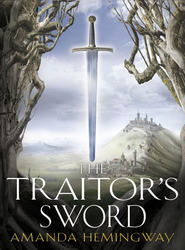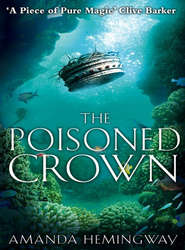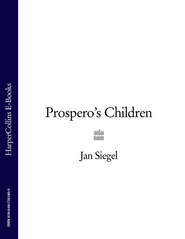По всем вопросам обращайтесь на: info@litportal.ru
(©) 2003-2024.
✖
The Greenstone Grail: The Sangreal Trilogy One
Автор
Год написания книги
2018
Настройки чтения
Размер шрифта
Высота строк
Поля
‘Inconclusive,’ Effie said. ‘An illegal immigrant might well wear a one-piece, a wetsuit or similar, if he had swum ashore. I heard that news item: they said so. As for your dreams – witches know about dreams, I won’t deny that, but it sounds to me like you’ve been watching too many science fiction films. Concentrate on your homework instead of the television.’
‘Nathan does well at school,’ Hazel said bravely.
‘Does he? Then why all this nonsense about other worlds?’
‘Because it did make sense,’ Nathan replied, ‘in my dream. If you didn’t believe me, why did you ask us in?’
The old woman leaned forward, cupping her hands around his face to draw it closer, digging her nails into his cheeks. Her fingers felt all knobbles and bones, but they seemed to be horribly strong. Her fierce eyes stared straight into his. In the poor light he could not tell their colour, only that they were dark, and had a lustre that was not quite human. He fancied she was seeking to look right into his mind, to unpick his thoughts and probe even to his subconscious, but he met stare with stare, trying to remain steadfast, not defiant but unyielding.
At length she released him, and sank back in her chair. ‘So,’ she said, ‘a dreamer, a traveller in other worlds. Well, we shall see. Ancestresses of mine were drowned on the ducking-stool and burned at the stake, and maybe I have inherited something of their Gift. I can read the future, and sometimes even the present, and only a fool would play cards with me. If there is anything to be seen, Nathan Ward, I will see it. Meanwhile, dream carefully. This tumbling from world to world – if that is what you are doing – is bad for the stomach, and worse for the head. Take care you don’t leave your brains behind.’
‘You do believe him,’ Hazel said, ‘don’t you, Great-grandma?’
‘You are impertinent,’ Effie snapped. ‘It is for me to decide who and what I believe.’ She rose to her feet and so did the children, conscious they had outstayed their welcome – if indeed they had ever had one. Suddenly, Effie rounded on Hazel, seizing her by the hair, plucking the loose strands off her face. But unlike Nathan, the girl could not meet her gaze, blinking in the grip of something akin to panic. ‘Remember,’ her great-grandmother said after a minute or two, ‘you too are a Carlow.’ The rasp in her voice might have softened, if she had been capable of softness; as it was, Hazel flinched away, twisting her head in the older woman’s grasp, averting her eyes. Then Effie let go, and the children were thrust outside. A pile-up of cloud was vanquishing the last of the daylight: it seemed as if they had brought the gloom of the cottage with them. They heard the front door shut, not with a bang but a snick, and began to walk along the roadside.
‘Does she have some kind of power,’ Nathan wondered, ‘or does she just think she has? There’s something definitely creepy about her.’
Hazel shivered. ‘Mum says she has the Sight, whatever that means. I remember she knew, the week before, when Uncle Gavin was going to die.’
‘When was that?’
‘Ages ago. Nearly a year. It was while you were at school.’
‘Was your uncle ill?’ Nathan inquired, looking sceptical. ‘After all, if someone is really ill, it’s fairly easy to guess when they’re going to die.’
‘No, he wasn’t. It was a – a neurism, or something. Very sudden.’
They walked on a while in silence. Nathan was frowning. ‘What did she mean,’ he said, ‘when she told you, you too are a Carlow?’
Hazel didn’t reply.
‘She thinks you’ve got power too, doesn’t she? Something you’ve inherited, like a gene for witchcraft.’
‘I’m normal,’ Hazel said abruptly. ‘I’m normal as normal. I don’t want to be like her. Anyway, Mum doesn’t have any powers that I know of. If she did, she’d be able to deal with Dad.’
‘Genes can sometimes skip a generation,’ Nathan said knowledgeably. ‘If they’re recessive. We learned about that in biology.’
‘Look, I’m not a witch, okay?’ Hazel said, her voice growing deeper as it always did when she was upset. ‘I don’t believe in witches – not even Great-grandma Effie. I’m just a girl.’
‘Pity,’ Nathan remarked. ‘Being a witch would be cool. We haven’t made much progress on other worlds, have we?’
Hazel was silent again, scuffing her feet as she walked. She still seemed to be disturbed by the imputation of witchcraft.
I’ll have to ask Uncle Barty, Nathan thought. But not yet. Not unless I have more dreams.
But time passed, and though he dreamed of the cup, and woke with the whispers in his ear, he did not revisit the alien world again for a long while.
Annie, too, neither heard nor sensed her unseen pursuers, though as spring mellowed into summer she often walked alone through wood or meadow, half daring the shadows to follow her. She was friendly with Michael, but she didn’t go to his house again, troubled by her one afternoon there and its consequences. Rianna was seen in the village, between engagements, and once came into the shop. Annie had noticed her a couple of weeks before on television in a repeat of an old drama, and she was privately taken aback at the contrast between her glamorous on-screen persona and the off-screen reality. Her face was gaunt, almost ugly, the eyes naturally shadowed, the mouth, without lipstick, pale and ill-defined. She wore no jewellery, not even a wedding ring. She scanned the shelves with no real interest and then asked for a particular book, but Annie had the impression she was making conversation, checking her out. Maybe Rianna had heard some village gossip, coupling Annie’s name with Michael’s; but she was fairly sure there had been none – and how would Rianna hear gossip, when she avoided local chit-chat and was almost always away?
‘I hear you have a son,’ Rianna said. ‘Twelve or thirteen?’
‘Twelve.’
‘They say he’s very unusual, for a boy of that age.’
‘I think him special,’ Annie confirmed with some warmth.
‘Part Asian, I understand?’
There was a nuance in her words, Annie believed, and she did her best to suppress a tiny spurt of anger. ‘Do you?’ she said.
If she was hostile, Rianna didn’t appear to notice. ‘Who was his father?’ she asked. There was a note of boredom in her voice, as if the question was automatic rather than inquisitive, but the narrow eyes were intent. Or so Annie imagined, though in the sombre interior of the bookshop it was difficult to be sure.
‘He was my husband,’ she answered, and there was an instant when Rianna appeared to freeze, perhaps recognizing the snub, but it passed, and she turned away, and left the shop without further questions.
She seemed more interested in Nathan than in my friendship with Michael, Annie thought, and she found this so baffling that she determined to mention it to Bartlemy, when a suitable opportunity arose.
In the kitchen at Thornyhill Bartlemy listened to the story in his usual unruffled manner. The cauldron of stock still simmered on the stove; Annie couldn’t recall a time when it hadn’t been there, and she had a sudden fancy that it was the same as the night she arrived, its contents stirred, sampled, augmented, but never changed, growing richer and more flavoursome over the years. The smell that drifted from beneath the lid still made her mouth water, and a mug of that broth – something Bartlemy doled out only rarely – satisfied hunger and warmed the heart like nothing else. ‘Do you ever change your stockpot?’ she asked him.
‘Good stock needs time,’ he said. ‘The longer the better.’
‘How long?’ Annie inquired; but he didn’t answer.
‘Don’t worry about this Rianna Sardou,’ he said at last. ‘She’s probably just curious.’
‘Why should she be curious about Nathan?’ Annie persisted. ‘She must know of him through Michael, but … why ask about his father?’
‘It may have been just a shot in the dark. She may be the inquisitive type. Has she ever seen him?’
‘I don’t know. I don’t think so. He likes Michael, so I expect he would’ve mentioned meeting his wife.’
‘Mm. Well, no doubt the truth will become evident in due course. Events – like this stock – take time to mature. You are young, and impatient.’
‘Not that young,’ Annie said. ‘I’m thirty-six.’
‘How old is Rianna Sardou, do you suppose?’
‘Late thirties … forty … Older than Michael, I think. Why?’
‘I just wondered,’ Bartlemy said.
When she had gone, he sat in the living room with Hoover, drinking sweet tea and gazing into the fire. ‘Why did I come here?’ he asked of no one in particular, but Hoover cocked an ear. ‘I read the signs, but I have never been one to follow such things. There have been few portents for me, over the years. All I ever wanted to do was heal sickness, and cook. Two sides of the same coin, Rukush. Drugs and potions cure illness, good food makes the body strong, and great food – ah, great food nourishes the soul. I can prepare a dessert that will turn a peasant into a poet, I can soothe the tyrant’s rage with soups and sauces, I can roast a sirloin so tender that it would make a proud man humble and an atheist believe in God. That was all the power I ever wanted. But when I saw a fantasy in the smoke I came here, and I waited. And the day Annie knocked on my door I knew that was what I was waiting for. Annie and the child. But still I don’t know why. There are always more questions, less answers. I think it is time to draw the curtains close, and make a different fire.’
When the last of the logs had burned down he cleaned out the grate and pinned the curtains together against prying eyes. Even so, it was far into the night before he lit a new fire, feeding it not with wood or coal but with bluish crystals that spat and cracked after too long in storage. The flame they emitted was also bluish, and cold-looking, and it filled the room with a pale chill light. Presently he threw some powder on it which seemed to be damp, turning the flame to smoke, and the room darkened again, and the chimney was closed off so the smoke could not escape, and the eyes of both man and dog grew red from the sting of it. Bartlemy made a gesture, a little like that of the man in Nathan’s dream, and the smoke was sucked into a cloud which hovered in one place, and there was a whirling at its heart. Vague colours flickered in its depths like trails of light. Then the whirling steadied, and the colours condensed, and in the midst of the smoke there was a picture.
A cup. It looked mediaeval or older, with a wide bowl and a short, thick stem entwined in coiling patterns that seemed to shape themselves into runes and hieroglyphs. It was made of opaque glass or polished stone, but it glowed as if endowed with secret life, and appeared to be floating in the green halo of its own light. The thread of a whisper came to Bartlemy’s ears from nothing in the room. Then the light vanished and the cup was falling, clattering onto a floor somewhere, rolling back and forth on the arc of its rim. A human hand descended slowly, and picked it up. ‘The Grimthorn Grail,’ Bartlemy murmured. ‘One of a hundred – a thousand – that lay claim to the ancient legend. But it was sold abroad, and lost in the turmoil of war, and the Thorns who had failed to care for it are long gone …’
The vision of the cup was replaced by a muddle of dim shapes, all unclear, but he thought he could make out a running figure, coming towards him. The image was too dark to see properly but he had an impression of breathlessness and fear, and shadows following, swarming on its heels, and in the quiet of the night there was the sound of whispering, reaching out from the smoke. It seemed to him that it was the same whisper he had heard a few minutes earlier, though louder, and with different words, different purpose. But he couldn’t be sure, since the words were indistinguishable, the purpose unrevealed. The picture sombred and was lost, and other images succeeded it, changing swiftly, some distinct, some vague and blurred. A small chapel with a cloaked man going from candle to candle: the lighted taper picked out his profile as he bent his head, the nose outthrust like a broken spar, the lipless fold of the mouth, the eyes sagging between multiple lids. The candles burned with a greasy flame, showing a gargoyle-face peering from a stony arch, and a low altar without a cross. Then the scene dissolved into a wood with tangled trees, maybe the Darkwood – then the flash and sparkle of a river in sunshine – a cage or grille, and hands that shook the bars – a wood in springtime, with a brown twig-legged creature lurking in the hollow of a tree – the river again, only this time there was a face beneath the water, and rippled sunlight flowing over it, but he knew it wasn’t drowned. Then back to the cloaked man, raising his arm, and a sudden blaze of fire, fire in the chapel, fire in the wood – and lastly, for no reason that Bartlemy could understand, a shingle beach in the drear light of a winter’s morning, and the ebb and surge of grey waves, and a man who seemed to have come out of the water, wearing a hood that covered his entire head.










